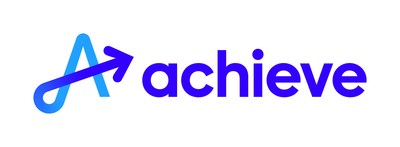1 in 3 consumers say their debt is unmanageable, Achieve survey finds
Digital personal finance company Achieve marks Financial Literacy Month with 6 savvy tips for when you can't pay your bills on time
SAN MATEO, Calif., April 24, 2025 /PRNewswire/ -- One in three (33%) consumers have trouble managing their debt and 35% can't pay all of their bills on time, according to new survey data from digital personal finance company Achieve. As Americans mark Financial Literacy Month with trepidation and concern about their ability to make ends meet, Achieve is offering expert-backed guidance to households on the brink of falling behind on their bills.
The survey was conducted by Achieve's think tank, the Achieve Center for Consumer Insights, and highlights the challenges households face with mounting debt. For example, among consumers with self-reported Excellent credit scores (760 and above), 36% are debt-free and 61% say their debt is manageable. Conversely, among consumers with Poor credit scores (below 620), just 3% are debt-free and 19% say their debt is manageable.
Dealing with Debt | |||||
Credit Score | |||||
How manageable is your household's debt? | All Respondents | Poor (<620) | Fair (620-659) | Good (660-759) | Excellent (≥760) |
Do not have any debt | 11 % | 3 % | 6 % | 13 % | 36 % |
Have a manageable amount of debt | 55 % | 19 % | 54 % | 76 % | 61 % |
Have a bit more debt than is manageable | 25 % | 44 % | 35 % | 11 % | 2 % |
Have far more debt than is manageable | 8 % | 34 % | 5 % | 1 % | 1 % |
Q: How manageable is your household's debt? Respondent breakout based on self-reported credit scores. Totals may not equal 100% due to rounding n=2,000 | |||||
"When people are overwhelmed and about to miss bill payments, they often don't know what steps to take — but the right strategy in that moment can make a major difference," said Achieve Co-Founder and Co-CEO Brad Stroh. "We want consumers to know they're not alone, and that help is available."
As Achieve recently reported, Americans continue to experience financial strain and rising debt: 26% of consumers saw their overall debt increase in the last three months of 2024, while 57% carry credit card balances to cover essential expenses. On-time bill payments are a major component of credit score calculations, making this practice essential to maintaining a strong credit history. While 65% of all survey respondents say they pay their bills on time, that figure jumps to 98% of consumers with Excellent credit scores and falls to 31% among those with Poor credit scores.
"Financial literacy isn't just about knowing what a budget is — it's about having a plan in moments of stress," Stroh said. "Achieve is committed to giving everyday people the resources they need to make knowledgeable decisions when it matters most."
Balancing the Bills | |||||
Credit Score | |||||
Over the past 12 months, my household has been financially able to: | All Respondents | Poor (<620) | Fair (620-659) | Good (660-759) | Excellent (≥760) |
Pay all our bills on time | 65 % | 31 % | 55 % | 83 % | 98 % |
Pay nearly all our bills on time | 20 % | 26 % | 29 % | 12 % | 2 % |
Pay most of our bills on time | 9 % | 17 % | 13 % | 4 % | 0 % |
Pay some of our bills on time | 4 % | 17 % | 3 % | 0.5 % | 0 % |
Pay very few of our bills on time | 2 % | 9 % | 0 % | 0.3 % | 0 % |
Q: Over the past 12 months, my household has been financially able to… Respondent breakout based on self-reported credit scores. Totals may not equal 100% due to rounding n=2,000 Source: Achieve Center for Consumer Insights | |||||
What to Do If You're About to Miss a Payment
Experts at the Achieve Center for Consumer Insights recommend the following steps if you find yourself struggling to make ends meet:
Methodology
The data and findings presented are based on an Achieve survey conducted in January 2025 consisting of 2,000 U.S. consumers ages 18 and older with an active account for one or more of the following categories of consumer debt: auto loan; major credit card with a minimum outstanding balance of $100; first-lien mortgage; home equity line of credit (HELOC); student loan; and other (unsecured personal loan, store-branded credit card, buy now, pay later loan, or closed-end home equity loan). The sample was augmented to include a statistically significant subset of credit card, auto loan and student loan borrowers who have been 30 days or more past due at least once in the past six months.
About the Achieve Center for Consumer Insights
The Achieve Center for Consumer Insights is a think tank that leverages Achieve's team of digital personal finance experts to provide a view into the state of consumer finances. In addition to sharing insights gleaned from Achieve's proprietary data and analytics, the Achieve Center for Consumer Insights publishes in-depth research, bespoke data and thoughtful commentary in support of Achieve's mission of helping everyday people get on the path to a better financial future.
About Achieve
Achieve, THE digital personal finance company, helps everyday people get on, and stay on, the path to a better financial future. Achieve pairs proprietary data and analytics with personalized support to offer personal loans, home equity loans, debt resolution and debt consolidation, along with financial tips and education and free mobile apps: Achieve MoLO® (Money Left Over) and Achieve GOOD™ (Get Out Of Debt). Achieve has 2,300 dedicated teammates across the country, with hubs in Arizona, California, Florida and Texas. Achieve is frequently recognized as a Best Place to Work.
Achieve refers to the global organization and may denote one or more affiliates of Achieve Company, including Achieve.com (NMLS ID #138464); Achieve Home Loans, Equal Housing Lender (NMLS ID #1810501); Achieve Personal Loans (NMLS ID #227977); Achieve Resolution (NMLS ID # 1248929) and Freedom Financial Asset Management (CRD #170229).
Contact
Austin Kilgore
Director
Corporate Communications
akilgore@achieve.com
214-908-5097
Elina Tarkazikis
Manager
Corporate Communications
etarkazikis@achieve.com
![]() View original content to download multimedia:https://www.prnewswire.com/news-releases/1-in-3-consumers-say-their-debt-is-unmanageable-achieve-survey-finds-302436816.html
View original content to download multimedia:https://www.prnewswire.com/news-releases/1-in-3-consumers-say-their-debt-is-unmanageable-achieve-survey-finds-302436816.html
SOURCE Achieve


